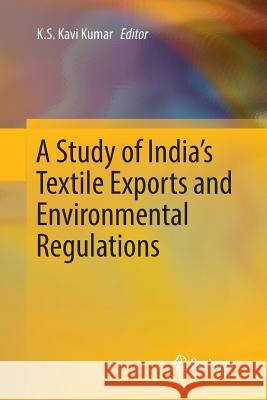A Study of India's Textile Exports and Environmental Regulations » książka
topmenu
A Study of India's Textile Exports and Environmental Regulations
ISBN-13: 9789811348518 / Angielski / Miękka / 2018 / 155 str.
Kategorie:
Kategorie BISAC:
Wydawca:
Springer
Język:
Angielski
ISBN-13:
9789811348518
Rok wydania:
2018
Wydanie:
Softcover Repri
Ilość stron:
155
Waga:
0.25 kg
Wymiary:
23.39 x 15.6 x 0.94
Oprawa:
Miękka
Wolumenów:
01
Dodatkowe informacje:
Wydanie ilustrowane











